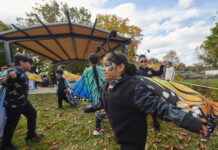Don’t let spring fever and summer vacation planning interrupt academics. End-of-year projects and exams help kids consolidate what they learned over the year and form the foundation for future knowledge. Here’s how to encourage your kids’ school efforts right up to the final bell.
Reassess the requirements
Consult the online grade portal or meet with your child’s teacher to see what work remains to be done. Also, evaluate progress made since September and think about areas for improvement, says Alexandra Mayzler, author of Tutor in a Book and SAT DeMystified. Clear up confusion over missing grades and complete past-due work, even if there’s a penalty. Later learning builds on early lessons, and the final exam could cover all course concepts.
Large projects and papers may require a series of steps. If your child skimped on initial steps such as research or received poor grades for his work, he may need to redo it now. It may take extra effort to complete a project and earn a good grade, but it may be impossible for kids to finish end-of-school assignments without filling in gaps.
Even if students can’t recoup grade points, they shouldn’t ignore past failures, says Ned Johnson, president of PrepMatters, a test-preparation company. “Study what went wrong with previous assignments or exams and help kids reengineer their approach,” he says. Ask a teacher or tutor for a study-skills tune-up. He may suggest learning strategies you hadn’t considered.
Make a plan
Check kids’ books and binders and get a bigger notebook if needed. Reorganize. Put notes in order. Stock up on supplies so you don’t run out.
Break papers, projects and study sessions into doable chunks and write test prep and project deadlines on a large desk calendar. Experts recommend students focus on a subject for no more than 45 minutes before taking a break; younger learners need even shorter sessions. Downtime allows the brain to consolidate learning and reenergize.
Make time for fun and friends. The transition between the school year and summer vacation can be emotional. All work and no play isn’t smart. Just “maintain the schedule of homework first and then playtime,” advises Christy Middlecamp, director of the Sylvan Learning Center of Marlton in Marlton, NJ.
Ease anxiety
Kids may overly focus on failures in an effort to improve. Remind them of their strengths. Use teacher-provided study guides or create one using past homework, quizzes and exams. Study guides keep students from skipping over concepts accidentally and also serve as at-home practice tests.
If your child has to make an oral presentation to the class, encourage her to rehearse in front of siblings or friends first, says Johnson: “It’ll be a little awkward, which is exactly the point.” Confronting jitters in a low-threat situation builds confidence and shows kids what to improve.
Hard work on spring academics will pay off in the fall when your student is in the next grade. Use the summer months to reflect on the past year’s learning and address major challenges.
Heidi Smith Luedtke, PhD, is a freelance writer.






